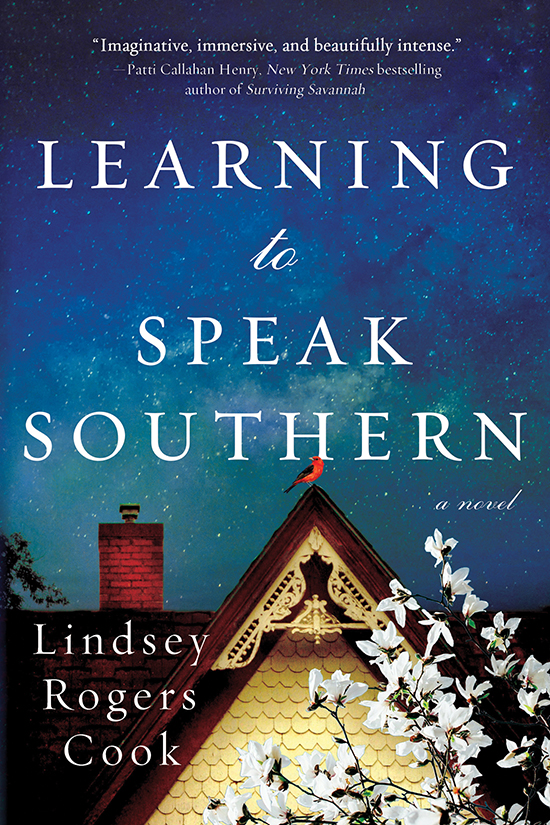Need Out of Reach
In her latest poetry collection, Darnell Arnoult addresses aging with candid humor and moving insight
We get our word “nostalgia” from the Greek nostos, which means something like “coming home,” and algos, which means “pain.” It’s easy to dismiss the discomfort of longing, the complicated emotions people experience when they think about the past, even its happy moments. In Darnell Arnoult’s latest collection, Galaxie Wagon, the poet gazes back on her life with an enviable clear-eyed vision. Even if factual details are hazy—as in “MG,” when the speaker asks of her brother, “Was he already in the Navy?”—there’s an attempt at honesty here that feels both appropriate and thrilling.
 Arnoult’s work is grounded in the Southern tradition of storytelling, and she never shies away from larger themes—the grand puzzles of attraction or mortality, for example. In “Love Story,” she writes that “God hides // in the questions we learn to ask.” In some ways, despite the directness of language that buoys this collection, the poems also illustrate Keats’s famous “negative capability,” an acceptance that there are mysteries beyond our understanding. One of those big mysteries is the cosmos where Arnoult finds her book title. Would that we all had a Galaxie wagon—the classic Ford car, yes, but also a safe backseat where we could stare up at the heavens and dream.
Arnoult’s work is grounded in the Southern tradition of storytelling, and she never shies away from larger themes—the grand puzzles of attraction or mortality, for example. In “Love Story,” she writes that “God hides // in the questions we learn to ask.” In some ways, despite the directness of language that buoys this collection, the poems also illustrate Keats’s famous “negative capability,” an acceptance that there are mysteries beyond our understanding. One of those big mysteries is the cosmos where Arnoult finds her book title. Would that we all had a Galaxie wagon—the classic Ford car, yes, but also a safe backseat where we could stare up at the heavens and dream.
Another surprising element of this book is the thread of humor that asserts itself in a tale of wrestling gorillas or in an ars poetica (a poem about writing poetry) that includes an appreciation for hushpuppies. Even in a poem about fear, Arnoult likens that gut-wrenching feeling to a door-to-door salesman, someone you’d like to ignore but who’ll only keep knocking. This is an impulse many readers will recognize, especially those raised in the South: having a good sense of humor is a point of pride, even if we’re laughing about some of the more challenging obstacles life offers. And Arnoult is Southern through and through. Born in Virginia, she’s now a Tennessean with ties from one end of the state to the other—a former Nashville-area resident, she earned her M.F.A. at the University of Memphis and currently teaches at Lincoln Memorial University in Harrogate.
Arnoult’s background begs a question: is there more pressure for a Tennessee poet to be musical? Do the ghosts of Beale Street or the Grand Ole Opry insist that writers hear the beat or get lost? Whether through coercion or personal preference, there’s certainly a pleasing rhythm to Arnoult’s work, as in the neck-breaking pace of “Episodes,” which conveys an appreciation for televised westerns in language as sharp-shooting as any of the stars:
Then my tenderfoot attention turned to wounded cowboy noir,
snatches of story caught in perpetual rerun. Acolyte, I hunkered
at the edge of a wagon-wheel rocker, face inches from the walnut
altar, that boxy black-and-white television with its gold-speckledfabric-colored speaker. I attended each regular saga….
Like any successful album, the rhythms in this book vary, and the poet shows that she’s just as comfortable with ballads. Which is to say, this is an accomplished collection, quietly epic in its embrace of subjects as divergent as nature and automobiles.
The consideration of family in Galaxie Wagon is particularly deft. In “Baggage,” for example, the speaker hangs out in the backseat while her daughter drives and her mother rides shotgun. In “Altar,” she wishes she had taken better care of her First Holy Communion Missal, so she could pass it along to her granddaughter. For all the wistfulness that these two poems convey, there are plenty of others that live in the moment. Indeed, several poems follow the progression of a new relationship, from a personal ad to a week-long trail ride.
And yet for its impressively wide range, Galaxie Wagon often circles back to nostalgia, to “how our lives took shape from need out of reach, / beyond the yoke of something as simple as yearning.” And yearning dogs these poems, as insistent as it is slippery. Arnoult lets her earned wisdom guide readers toward something that, if not understanding, is at least acceptance. To be human is to desire what we cannot name as we stare out the window of a fast car, moving forward whether we like it or not.

Erica Wright is the author of a new crime novel, The Granite Moth, as well as two poetry collections. Now a senior editor at Guernica, she grew up in Wartrace, Tennessee, and received her M.F.A. from Columbia University.


